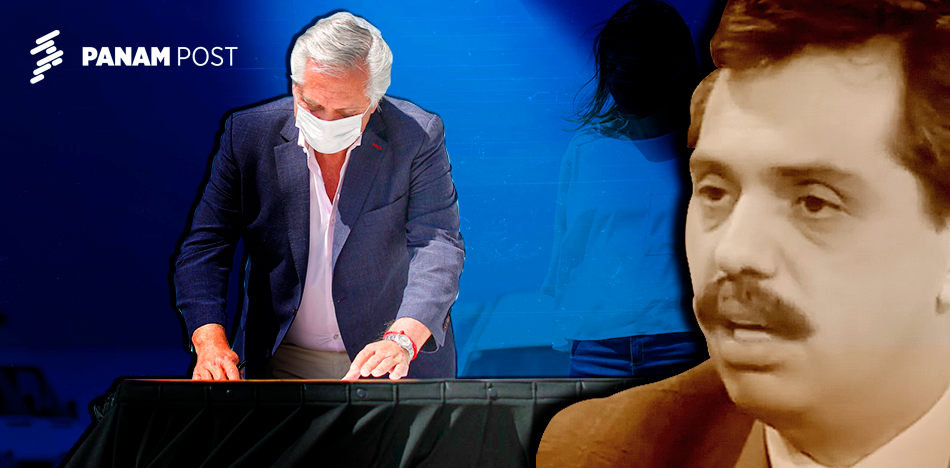
Spanish – The Peronist government of the Frente de Todos has serious problems of direction and total ideological indetermination, a product of the evident internal differences. At least, we have something clear: President Alberto Fernández is quite a Marxist. Maybe not from Karl, but definitely from Groucho. The maxim of debatable principles, which can change according to need and circumstance, makes the Argentine head of state a textbook case. While he was an official of Cristina Kirchner, he said one thing. After his fight and resignation, he said something else, and when they became friends again, he returned to the previous discourse. Although media networks constantly remember the differences between the Kirchnerist and anti-Kirchnerist Fernández, few remember the young civil servant of the nineties and his clearly classical liberal discourse.
When Fernández wanted “a small state”
During the end of Menemism and the beginning of Fernando de la Rúa’s short presidential term, Fernández worked in the Banco Provincia of Buenos Aires’ Peronist administration. He was not a frontline official who monopolized the press. But he was already profiled as an interesting leader who began to visit cable television programs, where Fernández gave his political opinions. Although he took his first steps in Alfonsinism during the eighties, it was not until the end of the nineties that microphones and cameras began to record his first transcendental declarations.
Sometime between 1997 and 1999, when he served as Vice President of Banco Provincia, the current president participated in an interview with Peronist leader Julio Bárbaro. In the meeting, he explained he believed that the Argentinean problem.
With several kilos less and no gray hair, Alberto assured that the state should reduce its size and, once again, redirect its resources to where they are most needed. He called for a “state that is short in stature, but muscular and capable.” It is worth noting that the fiscal pressure, the burdensome bureaucracy, and the government apparatus were considerably less in those years than they are today. Twenty years later, he would become the most useless, fat, flabby, and expensive president in Argentine history.
The president who no longer believes in the market
Fernandez’s last speech was undoubtedly one of the most embarrassing. He cited the concept of Rousseau’s “social contract” to defend his idea of the state, which has little to do with what he said when he was young, or when he resigned as head of the first Kirchnerist cabinet. At a time when trust is needed to encourage urgent investments, Alberto Fernández submits to the Christinistic discourse and directly questions the idea of the market.
This weekend, the president assured that the State serves to solve the asymmetries caused by the market. Without even acknowledging the creation and multiplication of production (something that even moderate and moderately intelligent social democrats do), Alberto assured that the market is a generator of disorders that politics must solve. The free exchanges for the Fernández model 2021 are a system where “the strongest usually benefit, and the weakest are usually eaten.” It was applauded by only a dozen officials in an absurdity worthy of the traditional Chavista pantomime.
Unlike most Kirchnerist portrayals, Alberto understands perfectly the Argentine problem. Even- we must admit- much better than several officials of the macrismo. I have it very clear thanks to several dialogues I had when he was in the plain, far from that first Kirchnerist version of which he slammed the door. Of course, it would not be acceptable for me to make these private exchanges public, although it would be of notable journalistic interest. He already did that when he broke all the codes and made public a talk with Mauricio Macri in which the former president expressed his opinion about the inevitable victims of the COVID-19. The only thing I can and want to say is that Alberto understands that his government plan can’t go anywhere. He will know why he is leading us into disaster at the hands of his ex-colleague, ex-rival, and ex-political boss. Well, that last “ex” may be more than dubious.
 Versión Español
Versión Español













